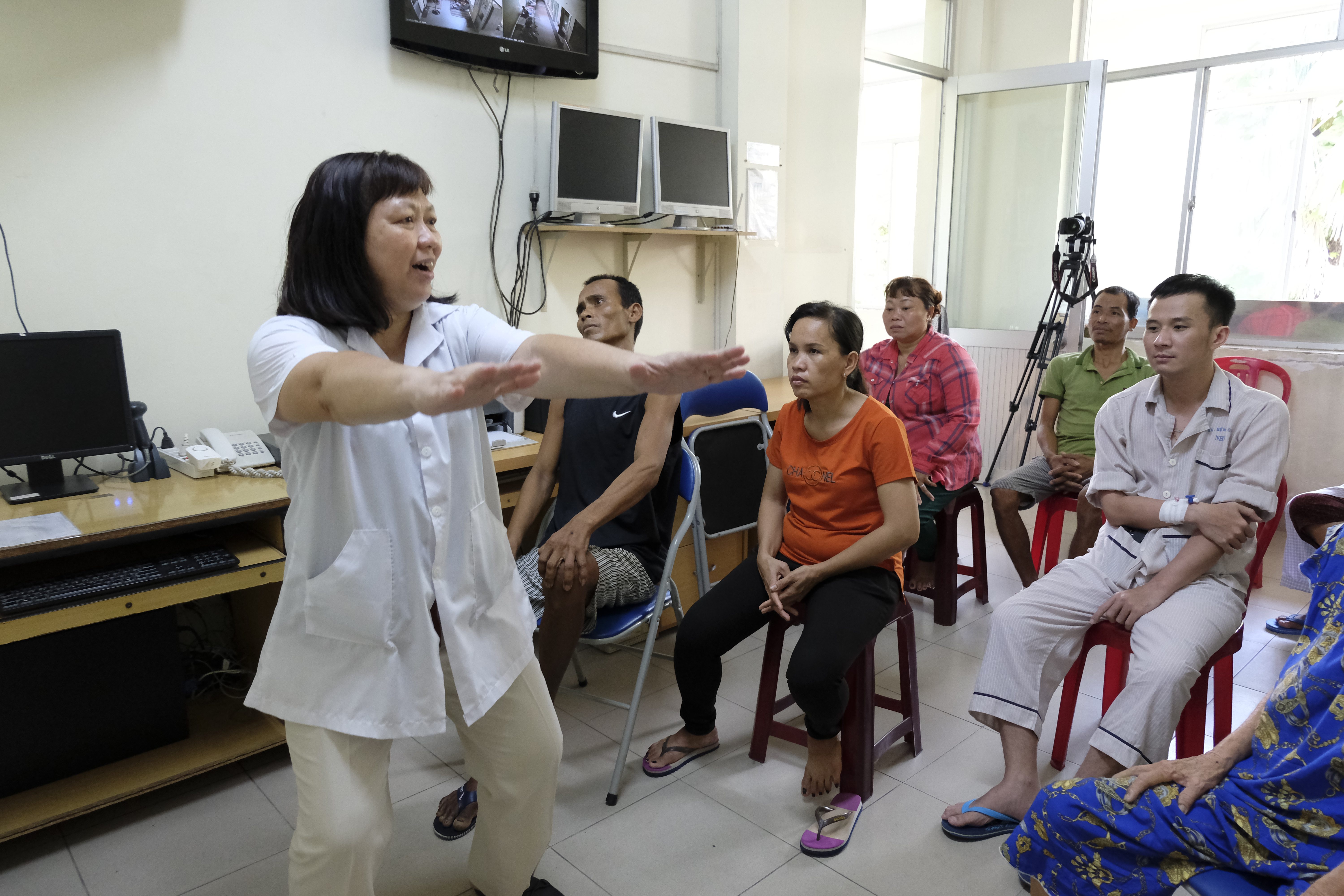A first-of-its kind randomised controlled trial compared two different antitoxin treatments for tetanus. A comparison of human and equine intramuscular antitoxin in adults found that intramuscular equine antitoxin is safe and effective for treating tetanus in adults. Addition of additional intrathecal (spinal) antitoxin does not add any benefit compared to treatment with intramuscular antitoxin alone.
This joint study carried out by the Oxford University Clinical Research Unit (OUCRU) and the Hospital for Tropical Diseases in Ho Chi Minh City has important implications for the treatment of tetanus, especially in low-resource settings.
Intramuscular antitoxin is recommended for the treatment of tetanus. The study found no evidence of increased adverse events in those treated with equine antitoxin compared to human antitoxin.
Equine antitoxin is cheaper and, in many countries, more easily available than human antitoxin. This study’s findings have shown that intramuscular equine antitoxin is safe, particularly where human antitoxin is unavailable.
Tetanus toxin acts within the central nervous system, where there is limited penetration of peripherally administered antitoxin; thus, intrathecal (spinal) antitoxin administration was thought to improve clinical outcomes compared with intramuscular injection. The study found that intrathecal injection, an invasive procedure, did not substantially reduce the requirement for mechanical ventilation in adults with tetanus.
“The results of this study affirm that the treatments for tetanus, using intramuscular equine antitoxin, which is a minimally-invasive treatment, is safe and effective. Compared to the invasive, complicated procedure of intrathecal injection, the result of this study shows the potential of intramuscular equine antitoxin in low and middle-income settings,” wrote Dr Lam Minh Yen, Senior Study Doctor at OUCRU and Dr Nguyen Van Hao, first author, Head of the Adult Intensive Care Unit at the Hospital for Tropical Diseases, Ho Chi Minh City, and Head of the Infectious Disease Department at the University of Medicine and Pharmacy, Ho Chi Minh City.
Two hundred and seventy-two adult patients with a clinical diagnosis of generalised tetanus admitted to the intensive care unit of the Hospital for Tropical Diseases were enrolled in this 3-year study.
“OUCRU and the Hospital for Tropical Diseases are, I think, unique in their ability to carry out these large clinical trials in tetanus – combining the clinical trial expertise and also clinical expertise in treating the patients who we hope will ultimately benefit from these type of studies,” shared Dr Louise Thwaites, Senior Clinical Research Fellow at OUCRU and Associate Professor in the Centre for Tropical Medicine and Global Health at the University of Oxford.
“This is an important study – one of the few clinical trials for a disease that continues to affect many people in low and middle-income countries each year. The trial shows that giving antitoxin (the main treatment for tetanus) by a spinal injection compared to the normal route (into the muscle) did not significantly improve patient disease severity or outcome.”
“The results are useful for doctors treating tetanus throughout the world, but especially in limited-resource settings, and show that a complicated and relatively expensive treatment is not necessary,” she concluded.
Media Contact: communications@oucru.org
Citation: N Van Hao PhD, H Thi Loan MD et al. Human versus equine intramuscular antitoxin, with or without human intrathecal antitoxin, for the treatment of adults with tetanus: a 2 × 2 factorial randomised controlled trial. The Lancet Global Health 2022;10(6):e862-e872. Available from: https://www.thelancet.com/journals/langlo/article/PIIS2214-109X(22)00117-6/fulltext
*The workshop pictured is a part of a project titled: ‘Feasibility and acceptability of family-led rehabilitation program for patients with tetanus,’ which aims to design and implement a healthcare worker & carer partnership to deliver a rehabilitation program for patients with tetanus, then evaluating the feasibility, sustainability and acceptability of this approach.
Funding: Wellcome




